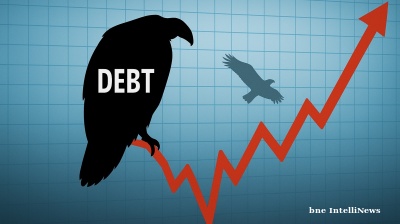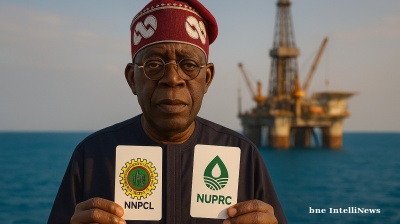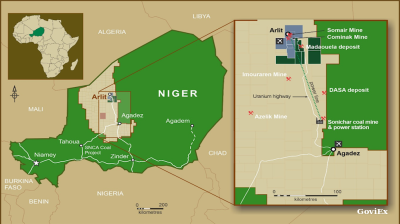Ukrainian President Volodymyr Zelenskiy appealed to the African Union for support on June 20, but Kyiv is struggling to find allies on the continent. Addressing the AU via video link, Zelenskiy noted that Russia’s invasion of Ukraine and its Black Sea port blockade has caused a global food crisis, claiming that "Africa is actually a hostage... of those who unleashed war against our state".
Global food prices have skyrocketed as 22mn tonnes of grain remain trapped in Ukraine, with many African countries suffering a heavy hit. Tunisia imports 49% of its wheat from Ukraine, Libya 48% and Egypt 26%, according to 2020 data from the UN Food and Agriculture Organisation (FAO).
Since its independence, Ukraine’s exports to African countries have grown steadily. Exports increased from $1.75bn in 2005 to $4bn in 2020, according to the IPS Journal, and Zelenskiy is keen to highlight the importance of Ukraine to Africa.
"This war may seem very distant to you and your countries," he told the AU. "But the food prices that are catastrophically rising have already brought [the war] to the homes of millions of African families."
However, the AU has not expressed the same level of support that European nations have provided Ukraine, and Zelenskiy’s address took place ten weeks after he requested to speak to the Union. Out of the 55 heads of state invited, only four attended, with the remaining countries sending representatives instead, the BBC reported.
The Russian invasion of Ukraine has been a contentious issue in the continent, where many countries, like Egypt, import both Ukrainian and Russian grain. 17 African states abstained from condemning the invasion in a UN vote in March, including South Africa, and eight chose not to vote at all, whilst Eritrea was one of four countries to vote against the condemnation.
Despite using language that attempts to build a connection with the continent, with Zelenskiy describing Russia’s invasion as a “colonial war”, Kyiv has so far failed to garner the same kind of support that Moscow has achieved in the region.
Reports of African students suffering racist abuse and discrimination when trying to leave Ukraine caused outrage across Africa and helped fuel Moscow’s “Nazi Ukraine” propaganda. Moreover, comments on social media described the invasion as a “white man’s war” and encouraged Africans to stay out of the conflict.
Russia, on the other hand, has reignited old-Soviet era relations with African allies and positioned itself as an alternative to the West without the colonial trauma. Moscow has been making friends and business partners in the region since the West imposed sanctions in 2014 for the illegal annexation of Crimea, doubling African-Russian bilateral trade over six years to $20bn in 2021.
Battling Western powers for influence, Russian President Vladimir Putin organised a Russia-Africa Summit in 2019 and became Africa’s largest arms supplier in 2020, supplying 30% of all arms to sub-Saharan Africa between 2016-2020, according to a 2020 analysis by the peace research institute SIPRI.
Earlier this month, Putin hosted a meeting with African Union head and President of Senegal, Macky Sall, and stated that Russia is “always on Africa’s side”.
"At the new stage of development, we place great importance on our relations with African countries, and I must say this has had a certain positive result," Putin added, according to France 24.
Sall told Putin of the food insecurity on the continent and described Africa as “victims on an economic level” due to the war. The Senegalese president appeared to level the blame on the West, saying: “The sanctions against Russia have caused more serious issues, we do not have access to Russian grain anymore (...) but above all, we lack fertilisers and our agriculture is already struggling”.
Russia has pushed a similar narrative that the European Union’s sanctions are to blame for the global food crisis, although EU foreign policy chief Josep Borrell dismissed these accusations, saying that the sanctions "don't forbid" countries outside the EU from conducting food trade with Russia or other nations, the BBC reported.
Nevertheless, the sanctions on fertilisers have been criticised by UN Secretary-General Antonio Guterres. After ordering Russia to “permit the safe and secure export of grain stored in Ukrainian ports”, Guterres stated that “Russian food and fertilisers must have unrestricted access to world markets without indirect impediments”, as unblocking the ports won’t be enough to solve the crisis.
Guterres visited the Sahel region of Africa last month and noted that severe acute malnutrition is rising and that farm animals are already dying of hunger. “Leaders told me that because of the war in Ukraine, on top of the other crises they face, they fear this dangerous situation could tip into catastrophe,” he said.
As Russia prepares for the second Russia-Africa summit, scheduled for October-November 2022 in Addis Ababa, Ethiopia, it is unsurprising that many African countries have refrained from condemning Moscow.
For its part, Africa is keen to keep relations civil, as many countries on the continent depend on Russian grain imports. South African President Cyril Ramaphosa claimed that the reason his government had abstained from the UN vote was that the resolution failed to emphasise the role of peaceful dialogue in stopping the war, Deutsche Welle (DW) reported.
This too was repeated by the AU, who said they initially didn't want to be addressed by Zelenskiy as they instead want dialogue to solve the crisis and do not fully agree with Kyiv’s rhetoric, the BBC reported.
Moreover, Ukraine is up against the Kremlin's propaganda machine, which has furthered Moscow’s interests in Africa and aims to "revive the old connections between the Soviet Union and [African] liberation movements", according to Angolan political scientist Olivio N'kilumbu, reported DW.
In 2019, leaked documents obtained by the Dossier Centre, an investigative unit based in London, revealed Moscow’s mission in 13 African countries to “strong-arm” Western powers out of the region and deter “pro-Western” uprisings, the Guardian reported. The mission was linked to Russian oligarch Yevgeny Prigozhin, head of the infamous Internet Research Agency, nicknamed the St. Petersburg “troll factory”.
Moreover, a report by the Stanford Internet Observatory revealed that Russian-linked companies were operating in Africa’s information space, linking this development to Prigozhin.
“While the presence of Russian military instructors and paramilitary groups in Libya and the Central African Republic is well documented, there is emerging evidence that Russian-linked companies are now active in the information space as well. Yevgeny Prigozhin, the oligarch perhaps best known for running the Internet Research Agency, is central to this expansion,” the report claims.
In addition to Russia’s campaign, racist Western reporting reopened colonial wounds and the West’s hypocrisy over welcoming Ukrainian refugees whilst shunning African and Asian ones has led to Africa’s hesitancy in supporting Ukraine.
“Many may fear that standing with Ukraine could be conflated with standing with the West,” Patrick Gathara wrote for Al-Jazeera. “Many Africans have also failed to see the commonalities between their struggles against imperialism and that of the Ukrainians, preferring to instead conflate the Ukrainians with their benefactors in Western Europe,” he added.
Moscow will continue to strengthen African-Russian relations at the second summit this year with hopes of working around Europe’s prodigious sanctions. With almost all high-tech machinery exports to Russia now banned, using Africa as a production base, which is free to import machinery from Europe, may become a way for Russia to avoid sanctions and buy badly needed equipment it can no longer source from Europe.
According to Russian Foreign Minister Sergey Lavrov, the two most important goals of the summit will be to sign off on a “memorandum of understanding [MoU] between the government of the Russian Federation and the African Union on basic principles of relations and cooperation” and a “memorandum of understanding between the Eurasian Economic Commission and the African Union on economic co-operation.”
Despite Russia’s close relationship with the continent, Ukraine has not been deterred from attempting to build relationships with African nations. Ukrainian Foreign Minister Dmytro Kuleba is currently preparing to tour sub-Saharan African countries in order to establish direct cooperation with African countries.
In the meantime, Ukraine is addressing the food crisis by establishing new routes via Romania, Poland and the Baltic states, to export its agricultural products. Although the new routes are subject to “certain bottlenecks”, Ukraine managed to export 650,000 tonnes of grain in the first three weeks of May. But this is still a significant drop from the 1.8mn tonnes exported during the whole of May last year.
As discussions continue over the Black Sea blockade, an estimated 45mn people in 38 countries are at risk of serious food shortages with disastrous consequences wreaking havoc across the globe. Already numerous people were killed in Iran last month during protests over rising bread and other food prices. As bne IntelliNews wrote in January, the food crisis could recreate the nightmare conditions for another Arab Spring.
Features

“Yuri Gagarin” cosmodrome seeking a future in space – and tourism
Golden age of spaceport is long over, with Moscow focused on facilities in Russia. Kazakhstan, however, hopes it can find profitable niche in launching satellites.

Russia’s 13 “drowning men” sink into corporate debt – The Bell
The Central Bank of Russia has quietly acknowledged growing financial distress among the country’s largest companies, identifying 13 corporations as "truly problematic" borrowers at the end of the first quarter.

Iranian arrested for Kalashnikov shooting near Caspian Sea
Iranian authorities arrest driver who opened fire with Kalashnikov rifle during road dispute on busy Chalous highway connecting Tehran to Caspian coast.

Unrest now a regular occurrence in South Asia
India is looking at a rapidly shifting political landscape along its Himalayan frontier, with the dramatic fall of K P Sharma Oli’s government in Nepal and the sudden emergence of youth-driven protests bringing increasing unrest to the country.




